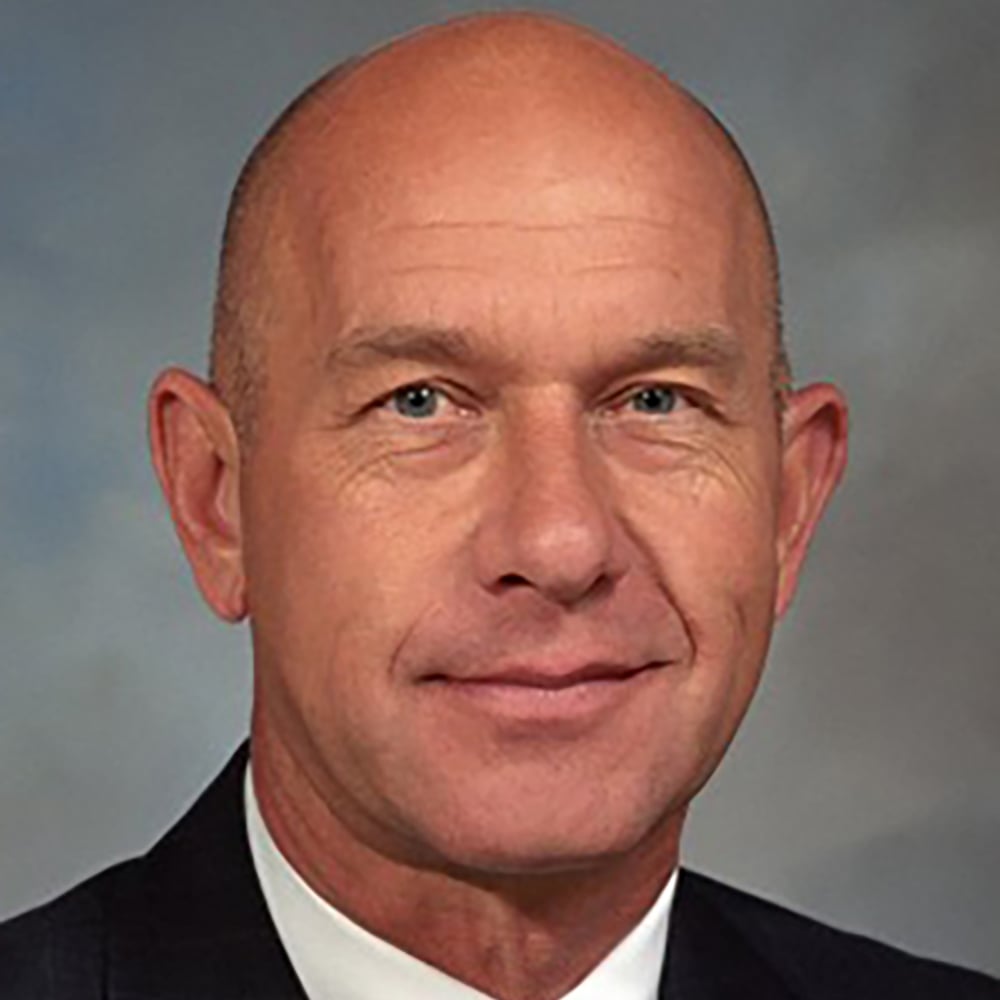The children hid. They dropped to the floor, crouching under desks and countertops, far from the windows. They lined up against the walls, avoiding the elementary school doors that separated them from a mass shooter about a decade older than them. Some held up the blunted scissors that they often used to cut shapes as they prepared to fight. A few grabbed bloodied phones and dialed 911. And as students across the country have been instructed for years, they remained quiet, impossibly quiet. At times, they hushed classmates who screamed in agony from the bullets that tore through their small bodies.
Then, they waited. Waited for the adults, whom they could hear in the hallway. If they were just patient, those adults would save them.
Hundreds of law enforcement officers descended on Robb Elementary School in Uvalde, that day in May 2022. They, too, waited. They waited for someone, anyone, to tell them what to do. They waited for the right keys and specialized equipment to open doors. They waited out of fear that the lack of ballistic shields and flash-bangs would leave them vulnerable against the power of an AR-15-style rifle. Most astonishingly, they waited for the children’s cries to confirm that people were still alive inside the classrooms.
“I’m watching that door. No screams. No nothing. No nothing. You know. Things you would think you would hear if there had been kids in there,” Cpl. Gregory Villa, who had been with the Uvalde Police Department for 11 years, told an investigator days after the attack that left 19 children and two teachers dead.
If there were children inside, Villa said, officers would have probably heard the shooter saying, “‘Hey, everybody shut up,’ and then kids are like, ‘Oh no, I gotta, I want my mommy.’”
Villa, who received active shooter training four years earlier, was among several officers who told investigators that they didn’t believe children were in the classrooms because they were so quiet. The children’s strict adherence to remaining silent was, in fact, part of their training. Officers’ own training instructs them to confront a shooter if there is reason to believe someone is hurt.
“I just honestly thought that they were in the cafeteria because it seemed like all the lights were off and it seemed like it was really quiet. I didn’t hear any screaming, any yelling. I literally didn’t hear anything at all,” Uvalde police Staff Sgt. Eduardo Canales recalled to an investigator. “You would think kids would be yelling and screaming.”
The accounts of law enforcement’s actions during one of the worst school shootings in history are among a trove of recorded investigative interviews and body camera footage obtained by ProPublica, The Texas Tribune and FRONTLINE. Together, the hundreds of hours of audio and video offer a startling finding: The children in Uvalde were prepared, dutifully following what they had learned during active shooter drills, even as their friends and teachers were bleeding to death. Many of the officers, who had trained at least once during their careers for such a situation, were not.
Mass shootings have become a fact of American life, with at least 120 since the 1999 Columbine High School shooting. Debates often erupt along partisan lines as anguished communities demand change. When children are gunned down, calls for tighter gun laws are matched with plans for arming teachers and hardening schools.
One thing that seemingly unites all sides is the notion of better training for law enforcement. But, in actuality, few laws exist requiring such instruction.
In the wake of the Columbine shooting, law enforcement agencies across the country began retooling protocols to prevent long delays like the one that kept officers there from stopping the two shooters. Key among the changes was an effort to ensure that all officers had enough training to engage a shooter without having to wait for more specialized teams.
More than two decades later, law enforcement’s chaotic response in Uvalde and officers’ subsequent explanations of their inaction show that the promise of adequate training to respond to a mass shooting has yet to be fully realized.
Officers failed to set up a clear command structure. They spread incorrect information that caused them to treat the shooter as a barricaded suspect and not an active threat even as children and teachers called 911 pleading for help. And no single officer engaged the shooter despite training that says they should do so as quickly as possible if anyone is hurt. It took 77 minutes to breach the classroom and take down the shooter.
“It’s pretty stunning that we’re 24 years after the Columbine massacre and we’re still dealing with a lack of training on how to deal with these active assailants,” said Mo Canady, executive director of the National Association of School Resource Officers. “I’m not sure who is to be held responsible for that, but it really is unacceptable that officers are not getting that training.”
A nationwide analysis by the news organizations shows states require far more training to prepare students and teachers for a mass shooting than they do for the police who are expected to protect them.
At least 37 states have laws mandating that schools conduct active shooter-related drills. All but four of those states require them at least annually.
In contrast, only Texas and Michigan have laws requiring training for all officers after they graduate from police academies. Texas’ law is the strongest in the country, mandating that officers train for 16 hours every two years. That requirement came about only after the Uvalde massacre.
The absence of legislation has created an uneven and inconsistent approach, which fails to ensure that officers not only receive the training they need to confront a mass shooter, but drill often enough to follow it in the adrenaline-soaked atmosphere of a real shooting, law enforcement experts said. Some also emphasize the importance of multiagency training so that officers are not responding to a crisis alongside people they’ve never worked with before. Yet few states, if any, require agencies to train together.
About 72% of the at least 116 state and local officers who arrived at Robb Elementary before the gunman was killed had received some form of active shooter training during their careers, according to an analysis of records obtained by ProPublica, the Tribune and FRONTLINE. Officers who received training before the Uvalde shooting had most commonly taken it only once, which law enforcement experts say is not enough. Only three officers would have met Texas’ new standard for training.
The news organizations reached out to each of the officers in this piece. An attorney representing officers with the Uvalde Police Department said the city has ordered them not to comment because of an ongoing internal investigation. Officers with other agencies did not return phone calls, texts and emails or declined to comment.
Across the country, officers are increasingly responding to situations with active shooters, some of whom have access to weapons originally designed for war. In the absence of gun control legislation, sales of these types of weapons have increased.
Unlike military service members who spend the majority of their time training for the possibility that they may someday see combat, police spend the bulk of their days responding to a variety of incidents, most of which do not involve violent encounters. Experts say that leaves many unprepared as the nation’s tally of mass shootings grows.
No clear consensus exists on just how much training is sufficient, though experts agree on the need for repetition. Even then, consistent training cannot guarantee that officers will do everything right, said John Curnutt, assistant director at Texas State University’s Advanced Law Enforcement Rapid Response Training Center, which is rated as the national standard by the FBI. Still, Curnutt said, routine training is the best way to improve officers’ response.
“It has to be really driven into somebody to the point where it becomes instinctive, habitual,” Curnutt said. “Before you really get a chance to think about it, you’re already doing it. And it takes more than 10 or 11 times to get that good at something like this that is going to be incredibly difficult to do when you know that, ‘I’m about to die, but I’m going to do this anyway.’ Who thinks like that? Not everybody. We know that. Not everybody that’s in uniform does.”
I was on the board of the Travis Elementary PTA when the Sandy Hook shooting occurred. At the first meeting after that, we on the board talked through our sadness and shock and disbelief as we discussed what changes would need to be made to try to keep our kids safer. Believe it or not, a little more than a decade ago, you could just open the front door while school was in session if you had business there. You still had to check in at the front desk, but you just walked in on your own. That’s not the case anymore, obviously – now you ring a camera-enabled doorbell to get buzzed in. Do I feel like anyone is actually safer because of that? A little bit, I guess. Mostly, I try not to think about it. It’s easier and less harrowing that way. I’m lucky to be in that position.
I’m just rambling here. There’s nothing I can say that I haven’t said many times before. Maybe someday we’ll get to a point where we really try to understand mass shootings and take effective steps to reduce their frequency. Today is not that day.

















